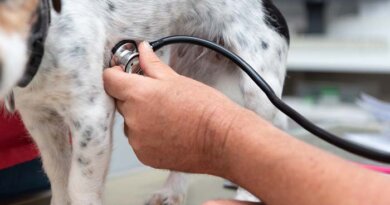Kibble, Cooked, or Raw? Which Dog Food Provides the Most Nutrition for my Pet?
By Brandine Strand
Anyone who’s spoken to a nutritionist about their own diet and health has probably heard that eating uncooked vegetables is better than eating those foods cooked. A raw green bean is better for you than a steamed or boiled green bean.
It’s true because, pretty simply, cooking any food take some
to most of the nutrients and vitamins out of the food. If you were forced to
eat green beans, wouldn’t you want them to at least provide you the maximum
nutritional benefit?
The truth is cooking green beans causes them to lose 30
percent of their potassium, iron and magnesium, and 20 percent of their vitamin
C content. (That’s all good stuff and you shouldn’t sacrifice any of it.)
So that begs the question – if dogs are man’s best friend, why don’t we feed our best friend the best available diet?

The simple truth is that raw dog food is the best available diet for our pets. The perceived risks of raw pet food are counterbalanced by dogs’ own biology. They have stronger stomachs than humans do so the risk of raw food for our dogs is greatly exaggerated.
Before we look at pet food, let’s also discuss meat. Those who eat meat like it cooked to
different degrees – rare to well done. While cooking meat has a minimal effect
on nutritional value, meat cooked until it’s well done contains more potential
carcinogens called heterocyclic amines (HCAs) than meat cooked for a shorter
time.
When meat is barbecued, grilled, fried or broiled HCAs are
formed when amino acids (the building blocks of protein) and creatine (a
natural compound found in muscle meats) react at high temperatures. In lab
animals, HCAs have been shown to cause colon tumors. In people, a heavy intake
of certain HCAs has been linked with a higher risk of colon polyps.
We don’t want to say that kibble causes cancer, but we do
believe it can take months, or years, off the life of your pet. Consider that the average kibble contains 47
ingredients. And the average raw pet
food contains about 7 ingredients. Which seems safer, more logical? Let’s look at the specifics about raw food.
Raw food for your dog contains the following benefits:
- It more closely mirrors the evolutionary diet of
wolves and wild dogs; - Dogs are carnivores designed to consume raw meat
and bones; - Raw food is higher in enzymes, vitamin and
minerals than cooked foods (see beans, green) - Improved skin and coat;
- Reduced ear infections;
- Improved breath;
- Fewer, less bulky, better smelling stools;
- Increased energy levels
- Reduced cases of chronic diseases;
- Better immune function and overall optimum
health.
Some context is required here. There are generally 8 leading
veterinary schools in the United States. Without exception, they are sponsored
by – and their nutrition classes are often taught by representatives of – the
three leading kibble companies. So even before our promising minds become
veterinarians, they are conditioned to believe that raw food is a threat to the
health of pets.
That fear, bluntly, is misplaced. The pet food industry is held to higher
guidelines than humans are, for example, to raw chicken meat. We all know if
you touch raw chicken you should immediately wash your hands. You don’t want to
contract any germs that could make you ill, particularly to Salmonella.
The same is true for raw pet food. You should, and you must, wash your hands
after touching it. And doing so should eliminate the perceived risk of raw pet
food.
Remember the stomach of a dog is much stronger than the
stomach of a human. Think about what wolves eat – the meat of recently, and not
so recently, dead animals. Domesticated dogs have a slightly different
tolerance, which is why the better raw pet food companies include the proper
balance of meat, vegetables and bone to provide the safest and most nutritious
formula available to your best friend.
According a recent survey,
over 52 percent of dogs are either overweight or obese; that equals 50
million dogs in need of a better diet. Almost 90 percent of dog owners
feed their dog kibble and over half our dogs are overweight. “Big Kibble”
can cause several health problems, ranging from arthritis to skin irritations
to allergies to heart disease. Providing your dog an appropriate nutritional
plan can add years to his or her life. Raw dog food provides the critical
nutrients required for a healthy lifestyle and can reverse obesity in
dogs. Consider that raw dog food:
- Contains about 1/3 of carbs compared to dry kibble;
- Offers more than 50 percent more protein;
- Includes, on average, 7 ingredients compared to more than 47 for most kibble brands;
- Features vegetables that contain significant nutrients for pets.
Once you know the objective facts, you must at least consider the issue of raw food, or at least lightly cooked food, for your dog. Remember the green beans and feed your dog accordingly.

Brandine Strand is an avid life-long dog mom & entrepreneur, passionate about holistic health & natural medicine. In 2018, she founded Cali Raw Nutrition, a premium raw dog food company that ships human-grade, complete & balanced, life-stage specific meals straight to your door. Brandine is dedicated to making it easy for dog lovers to provide optimal nutrition for the enhanced health & longevity of their dogs.




Read information now. Read now.
where to get generic propecia now
Long-Term Effects. Drugs information sheet.
online shopping pharmacy india https://indiapharmacy24.pro/# – online shopping pharmacy india indiapharmacy24.pro